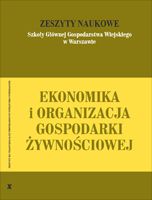Main Article Content
Article Details
BEDNARZ M., 2008: Polityka społeczna jako zaspokajanie istotnych potrzeb społecznych, Wydawnictwo KPS, Bydgoszcz.
BIEŃKOWSKA I., KITLIŃSKA-KRÓL M., 2017: Rodzina w świetle danych demograficznych w Polsce i w Europie,Zeszyty Naukowe Politechniki Śląskiej. Organizacja i Zarządzanie 112, 35–46.
BRZEZIŃSKI M., CHŁOŃ-DOMIŃCZAK A., KOTOWSKA I.E., MAGDA I., MYCK M., NAJSZTUB M., TYROWICZ J., 2019: „Rodzina 500+” – ocena programu i propozycje zmian, pobrane z: https://ibs.org.pl/app/uploads/2019/05/Raport_500plus.pdf [dostęp: 12.10.2019].
DOBROWOLSKI Z., 2017: Instrumenty finansowania polityki społecznej, Instytut Spraw Publicznych UJ, Kraków.
Główny Urząd Statystyczny, 2018: Kobiety i mężczyźni na rynku pracy 2018, Warszawa, pobrane z: https://stat.gov.pl/download/gfx/portalinformacyjny/pl/defaultaktualnosci/5821/1/7/1/kobiety_i_mezczyzni_na_rynku_pracy_2018.pdf [dostęp: 10.12.2019].
GROMADA A., 2017: Rodzina 500+ jako polityka publiczna, Instytut Studiów Zaawansowanych, Warszawa, pobrane z: www.krytykapolityczna.pl/file/2016/02/ gromada_rodzina_500.pdf [dostęp: 10.10.2019].
HAPONIUK M., 2013: Sytuacja kobiet na rynku pracy w Polsce, [w:] M. Kiełkowska (red.), Rynek pracy wobec zmian demograficznych, Instytut Obywatelski, Warszawa, pobrane z: www.instytutobywatelski.pl/wpcontent/uploads/2013/09/Demografia_01.10.pdf [dostęp: 20.10.2019].
MYCK M., 2016: Estimating labour supply response to the introduction of the Family 500+ Programme, CenEA Working Paper, pobrane z: www.cenea.org.pl/images/stories/pdf/working_papers/cenea_wp_0116.pdf [dostęp: 10.09.2019].
RUDZIK-SIERDZIŃSKA A., 2017: Czy program „Rodzina 500+” wywołał efekt na rynku pracy?, Instytut Obywatelski, Warszawa, pobrane z: www.instytutobywatelski.pl/wp-content/uploads/2017/05/ruzik_15.pdf [dostęp: 15.06.2019].
SUPIŃSKA J., 2014: Dylematy polityki społecznej, Oficyna Wydawnicza ASPRA-JR, Warszawa.
SZARFENBERG R., 2017a: Teoria i praktyka polityki społecznej, Studia BAS 2(50), 9–36.
SZARFENBERG R., 2017b: Wpływ świadczenia wychowawczego (500+) na ubóstwo ogółem i ubóstwo dzieci na podstawie mikrostymulacji, Instytut Polityki Społecznej, Warszawa, pobrane z: www.rszarf.ips.uw.edu.pl/pdf/wplyw500+.pdf [dostęp: 15.06.2019].
SZATUR-JAWORSKA B., 2016: Polska polityka społeczna wobec starzenia się ludności w latach 1971–2013, Dom Wydawniczy Elipsa, Warszawa.
SZCZEPANIAK-SIENNIAK J., 2015: Polityka rodzinna państwa we współczesnej Polsce, Społeczeństwo i Ekonomia 2(4), 100–115.
Uchwała nr 88/III/18 Rady Gminy Zambrów z dnia 28 grudnia 2018 r. w sprawie ustanowienia wieloletniego programu osłonowego w zakresie dożywiania „Pomoc Gminy Zambrów w zakresie dożywiania” na lata 2019–2023. Dz.U. Województwa Podlaskiego 2019, poz. 146.
Ustawa z dnia 12 marca 2004 r. o pomocy społecznej. Dz.U. 2004 nr 64, poz. 593.
Ustawa z dnia 7 września 2007 r. o pomocy osobom uprawnionym do alimentów. Dz.U. 2007 nr 192, poz. 1378.
Ustawa z dnia 11 lutego 2016 r. o pomocy państwa w wychowywaniu dzieci. Dz.U. 2018 poz. 2134.
ZVIRBULE-BERZINA A., 2011: The role of enterprise integration in agriculture entrepreneurship. Proceedings of 8th International Conference "Economic Integration, Competition and Cooperation", 6-9 April, Opatija, University of Rijeka – Faculty of Economics. https://doi.org/10.2139/ssrn.2232640
Downloads
- Andrzej Czyżewski, Ryszard Kata, Anna Matuszczak, The stabilizing effect of domestic and EU budget spending on Polish agriculture – an attempt to quantify , Zeszyty Naukowe SGGW - Ekonomika i Organizacja Gospodarki Żywnościowej: No. 125 (2019)
You may also start an advanced similarity search for this article.
- Kinga Gruziel, Financial Consequences of Income Tax in Individual Farms Introducing , Zeszyty Naukowe SGGW - Ekonomika i Organizacja Gospodarki Żywnościowej: No. 72 (2008)
- Mariusz Chądrzyński, Wladyslaw Grabski views on progress and innovation in agriculture , Zeszyty Naukowe SGGW - Ekonomika i Organizacja Gospodarki Żywnościowej: No. 116 (2016)
- Mariusz Chądrzyński, Role of MSE Sector in Polish External Trade in the years 1994–2004 , Zeszyty Naukowe SGGW - Ekonomika i Organizacja Gospodarki Żywnościowej: No. 72 (2008)
- Mariusz Chądrzyński, The selected circumstances of functioning and the development of small and medium size enterprises in rural areas in Poland , Zeszyty Naukowe SGGW - Ekonomika i Organizacja Gospodarki Żywnościowej: No. 79 (2009)
- Mariusz Chądrzyński, Efficiency of the activity of institutions supporting entrepreneurship development in rural areas of Łódź Province , Zeszyty Naukowe SGGW - Ekonomika i Organizacja Gospodarki Żywnościowej: No. 61 (2006)
- Mariusz Chądrzyński, Chances and Barriers for Performance and Development of the SME Sector in Rural Areas , Zeszyty Naukowe SGGW - Ekonomika i Organizacja Gospodarki Żywnościowej: No. 48 (2003)
- Mariusz Chądrzyński, Selected Problems of Quality Management in Small-Sized Meat Processing Plant , Zeszyty Naukowe SGGW - Ekonomika i Organizacja Gospodarki Żywnościowej: No. 43 (2001)
- Mariusz Chądrzyński, The level of innovativeness of enterprises in the polish economy with particular emphasis on the food industry , Zeszyty Naukowe SGGW - Ekonomika i Organizacja Gospodarki Żywnościowej: No. 124 (2018)
- Kinga Gruziel, The costs of agricultural tax assessment and collection on the example of rural communes (NUTS 5) of Opolskie region (NUTS 2) , Zeszyty Naukowe SGGW - Ekonomika i Organizacja Gospodarki Żywnościowej: No. 110 (2015)






 Knowledge base
Knowledge base